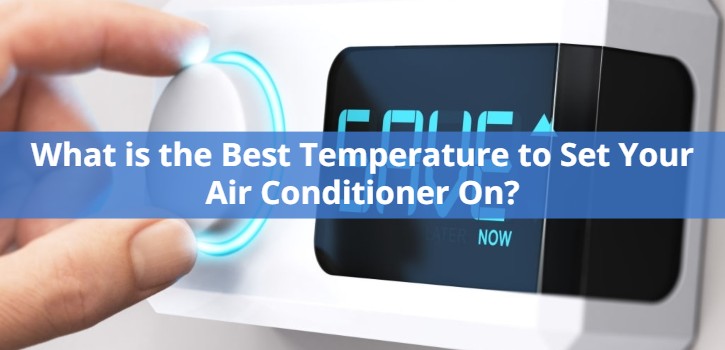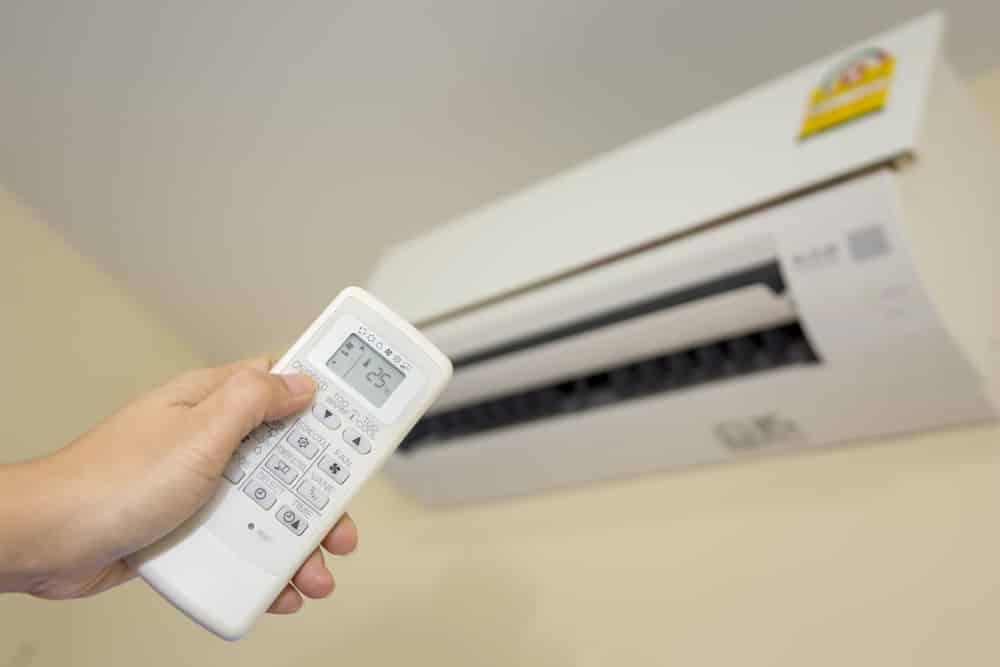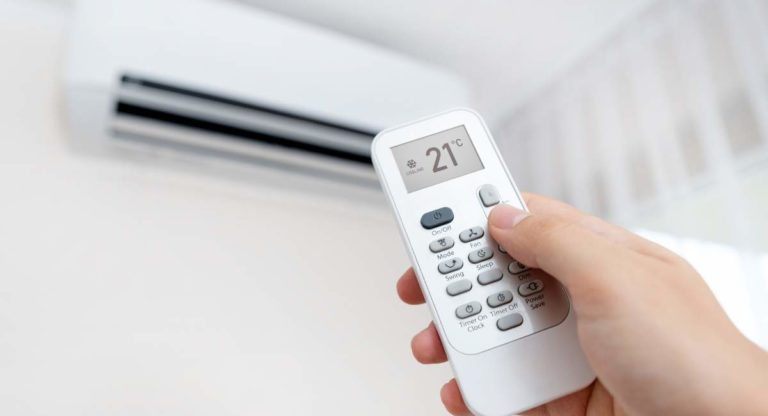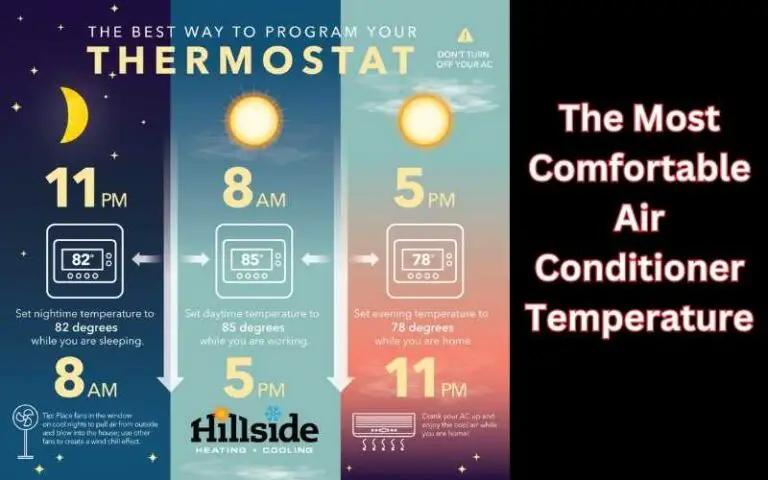What Is Good Air Conditioner Temperature
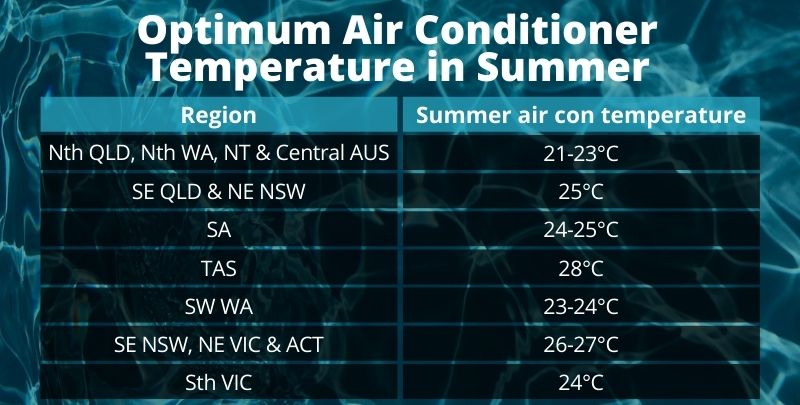
Finding Your Perfect Cool: What's the Ideal Air Conditioner Temperature?
Figuring out the right temperature for your air conditioner isn't just about comfort; it's about energy efficiency and the overall health of your HVAC system. This guide will help you understand the factors influencing your ideal AC temperature and offer tips for troubleshooting common issues.
Understanding Temperature Recommendations
While personal preference plays a significant role, the U.S. Department of Energy recommends setting your thermostat to 78°F (26°C) when you're home and increasing it by 7-10 degrees when you're away. This balance helps conserve energy without sacrificing comfort.
However, 78°F might not be right for everyone. Several factors influence your optimal AC temperature, including:
- Climate: If you live in a humid climate, you might need to set your AC lower to effectively dehumidify the air.
- Insulation: Poor insulation means your AC has to work harder to maintain a set temperature.
- Home Layout: Two-story homes often have temperature imbalances, requiring adjustments.
- Personal Health: Infants, the elderly, and individuals with certain medical conditions may require different temperature settings.
Troubleshooting Temperature Discrepancies
Is your AC struggling to reach your desired temperature? Here are some common culprits and DIY checks you can perform:
1. Check Your Air Filter
A dirty air filter restricts airflow, making your AC work harder and less efficiently. This is one of the most common causes of poor cooling.
DIY Steps:
- Locate your air filter (usually inside the indoor unit or in a wall/ceiling vent).
- Remove the old filter.
- Inspect the filter – if it's visibly dirty, it needs replacing.
- Install a new filter of the correct size and MERV rating (check your AC unit's manual).
- Replace your air filter every 1-3 months, or more often if you have pets or allergies.
2. Inspect the Outdoor Unit
The outdoor condenser unit needs adequate airflow to release heat. Obstructions can significantly reduce its efficiency.
DIY Steps:
- Ensure there's at least 2-3 feet of clear space around the unit.
- Remove any leaves, grass clippings, branches, or other debris.
- Check for bent fins. Use a fin comb (available at most hardware stores) to gently straighten them.
- Turn off the power to the unit at the breaker box before cleaning. Use a garden hose (low pressure) to gently wash away dirt and debris from the fins. Never use a pressure washer!
3. Evaluate Air Leaks
Leaky windows and doors allow conditioned air to escape, forcing your AC to work harder. Sealing these leaks can make a noticeable difference.
DIY Steps:
- Visually inspect windows and doors for gaps or cracks.
- Feel for drafts, especially around frames.
- Caulk around window and door frames to seal gaps.
- Replace worn weather stripping.
- Consider using window film to reduce solar heat gain.
4. Thermostat Calibration
A miscalibrated thermostat can give inaccurate readings, leading to discomfort and energy waste.
DIY Steps:
- Check your thermostat's manual for calibration instructions. Many digital thermostats have a calibration setting.
- Compare the thermostat reading to a reliable thermometer placed nearby.
- If the readings differ significantly, adjust the thermostat accordingly, following the manual's instructions.
- If you can't calibrate it yourself, consider replacing the thermostat.
When to Call a Professional
While some AC issues are easy to address yourself, others require professional expertise. Here are some situations where it's best to call an HVAC technician:
- Refrigerant Leaks: Refrigerant is essential for cooling, and leaks can harm both your AC and the environment. Handling refrigerant requires specialized equipment and certification.
- Compressor Problems: The compressor is the heart of your AC. If it's failing, repair or replacement can be complex and expensive.
- Electrical Issues: Working with electrical components can be dangerous. Let a qualified electrician or HVAC technician handle electrical repairs.
- Frozen Evaporator Coil: This can indicate a refrigerant issue or airflow problem.
- Persistent Cooling Problems: If you've tried the DIY steps and your AC is still not cooling properly, it's time to seek professional help.
Estimated Repair Costs
Understanding potential repair costs can help you budget and make informed decisions. Here are some average cost ranges (these can vary depending on your location and the specific issue):
- Refrigerant Recharge: $200 - $500
- Compressor Replacement: $800 - $2500
- Evaporator Coil Replacement: $600 - $2000
- Condenser Fan Motor Replacement: $200 - $600
- Thermostat Replacement: $100 - $400
Note: These are just estimates. Always get a detailed quote from a qualified HVAC technician before proceeding with any repairs.
Safety First!
When working with your AC, always prioritize safety:
- Turn off the power to the unit at the breaker box before performing any maintenance.
- Never work on electrical components unless you're a qualified electrician.
- Wear appropriate safety gear, such as gloves and eye protection.
- Be careful when working at heights. Use a stable ladder and have someone spot you.
- If you're unsure about anything, call a professional.
Optimizing Energy Efficiency
Beyond setting the right temperature, here are some additional tips for maximizing your AC's energy efficiency:
- Use a Programmable Thermostat: Schedule temperature changes based on your daily routine.
- Close Curtains and Blinds: During the hottest part of the day, block sunlight to reduce heat gain.
- Use Ceiling Fans: Ceiling fans help circulate air, allowing you to set your thermostat a few degrees higher.
- Schedule Regular Maintenance: Annual AC tune-ups can improve efficiency and prevent costly repairs.
- Consider a Smart Thermostat: Smart thermostats learn your habits and adjust the temperature automatically, optimizing comfort and energy savings.
Common AC Problems and Solutions: A Quick Reference
Here's a table summarizing common AC issues, possible causes, and potential solutions:
| Problem | Possible Cause | Possible Solution |
|---|---|---|
| AC not cooling | Dirty air filter, refrigerant leak, compressor issue | Replace air filter, call a professional for refrigerant leak/compressor |
| AC blowing warm air | Refrigerant leak, frozen evaporator coil, compressor issue | Call a professional for refrigerant leak/compressor, check airflow for frozen coil |
| AC cycling on and off frequently | Dirty air filter, oversized AC unit, refrigerant leak | Replace air filter, consult HVAC professional |
| High energy bills | Inefficient AC unit, poor insulation, air leaks | Schedule maintenance, improve insulation, seal air leaks |
| Noisy AC | Loose parts, failing motor, refrigerant leak | Tighten loose parts (if safe), call a professional |
Tools You Might Need for DIY AC Maintenance
- Screwdrivers (Phillips and flathead)
- Wrench set
- Air filter
- Fin comb
- Caulk gun and caulk
- Weather stripping
- Multimeter (for testing electrical components, only if you are qualified)
- Vacuum (for cleaning)
Parts You Might Need for DIY AC Maintenance
- Air filter
- Thermostat
- Weather stripping
- Caulk
- Capacitor (replace only if you are qualified and know how to safely discharge)
By understanding the factors influencing your ideal AC temperature and performing basic maintenance, you can keep your home comfortable and your energy bills in check. Remember to prioritize safety and call a professional when needed. Enjoy your cool and comfortable home!




